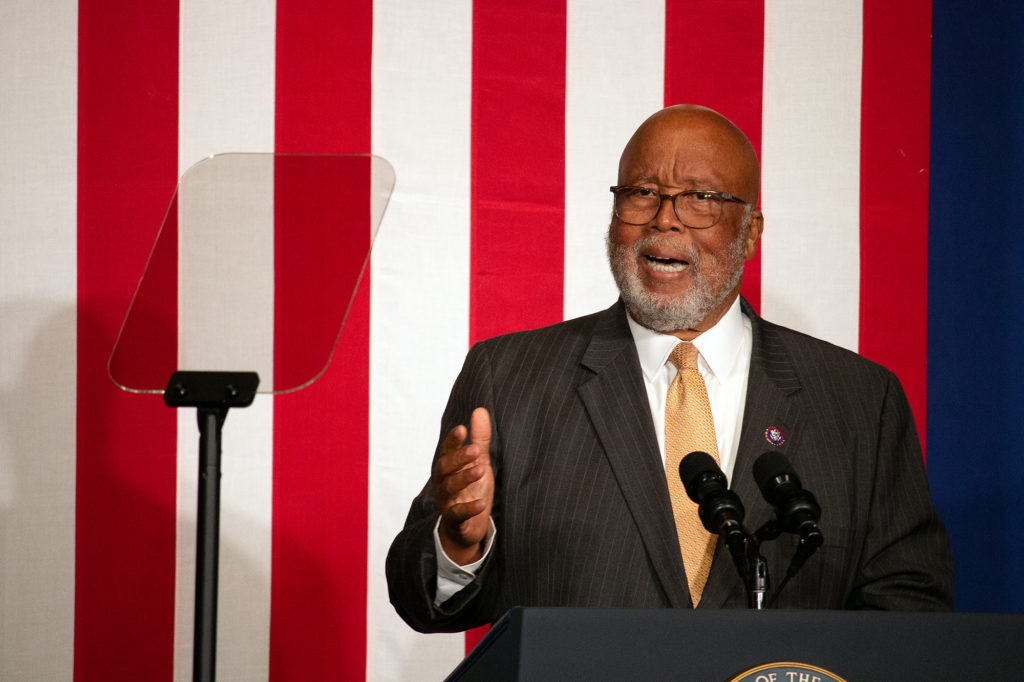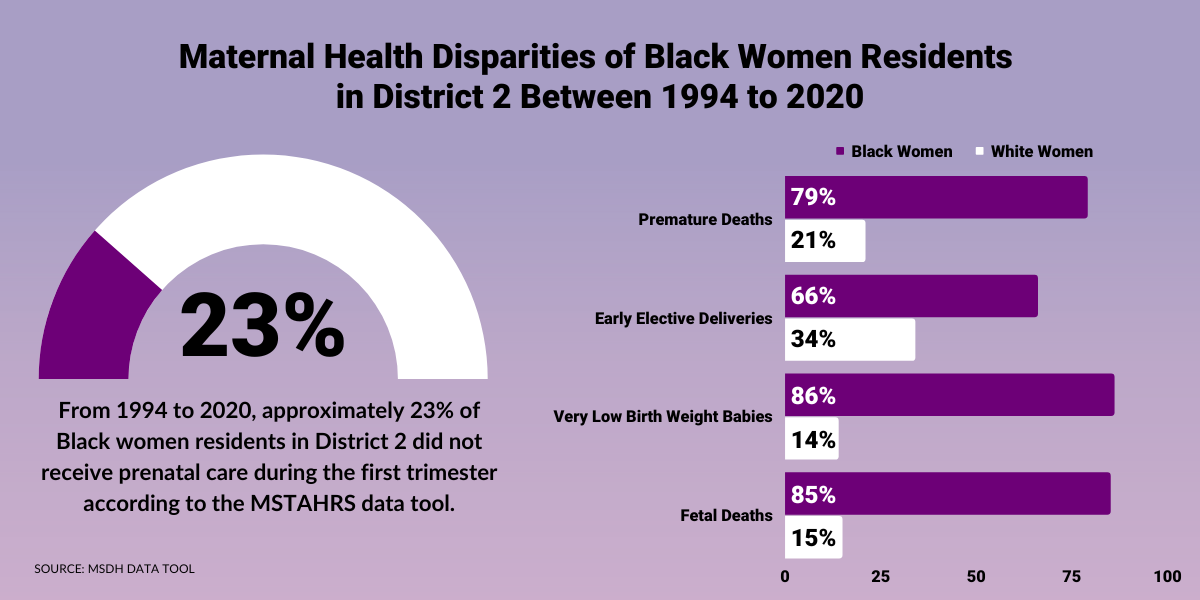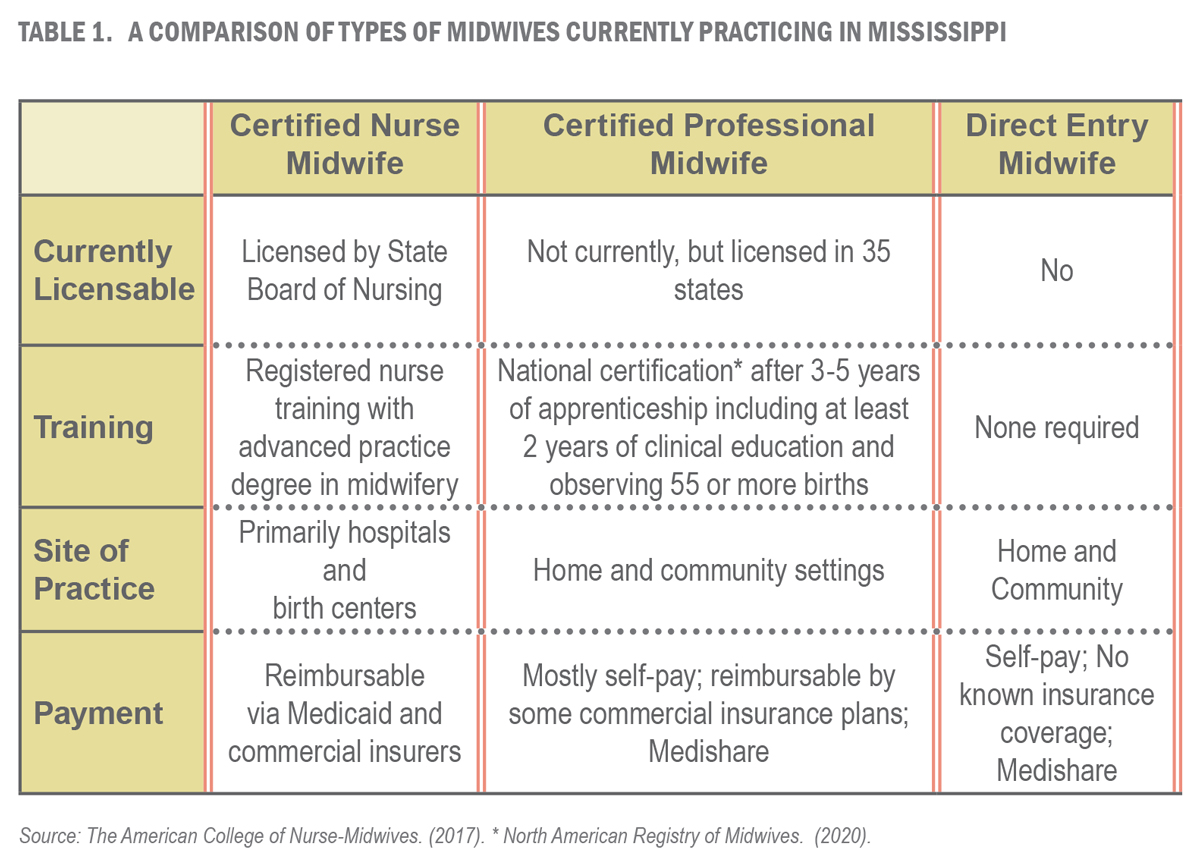U.S. Rep. Bennie Thompson Absent on Preventing Black Birth Disparities

[ad_1]
I have sought assistance from the U.S. House Rep. Bennie Thompson to address the perpetual maternity crisis facing Black mothers and babies in his district since 2018, but my pleas have fallen on deaf ears.
Thompson has served as the Democratic representative for Mississippi’s 2nd Congressional District since 1993 and was the only Mississippi congressman to support the BABIES Act, which died in committee in 2019 and again in 2021.
“I am a proud cosponsor of HR 5189, Birth Access Benefiting Improved Essential Facility Services (BABIES) Act. This legislation would create a demonstration payment under Medicaid,” Rep. Thompson said in an October 2020 email. “The legislation provides guidance to develop a prospective payment system (PPS) that would reimburse freestanding birth centers for prenatal care, perinatal, and postpartum mother, and infant care. By providing a model of cost coverage for freestanding birth centers, we can continue to use cost-effective, creative solutions to improve maternal mortality and improve infant outcomes.”
Yet he has refused to unilaterally award federal appropriation funding to build a birthing center in his district, which needs it most. From 1994 to 2020, approximately 23% of Black women residents in the 2nd Congressional District did not receive prenatal care during the first trimester according to the Mississippi State Department of Health data tool.

Nearly 50,000 premature births, over 26,000 early elective deliveries (non–medically indicated labor inductions or cesarean deliveries), more than 7,200 very low birth weight births and 4,352 fetal deaths have occurred among residents since Thompson has been in office. Black women accounted for approximately 79% of premature births, 66% of early elective deliveries, 86% of very low birth weight babies and approximately 85% of fetal deaths in his district.
African American women from all walks of life are dying from preventable pregnancy-related complications at three-to-four times the rate of non-Hispanic white women, while the death rate for Black infants is twice that of infants born to non-Hispanic white mothers. Black babies in the U.S. account for 40% of all births and 60% of deaths before their first birthday.
Solution: Erect Freestanding Birthing Centers
Last year, I opened a clinic, Sisters in Birth, to provide midwifery care to Black women in the 2nd District to fight against this growing disparity. Realizing that a clinic alone was insufficient, I decided to build a freestanding birth center, which aligns with the midwife model of care to provide options for low-risk pregnant women who want a non-medical delivery from a midwife, but not at home. Birth centers operate independently from hospitals, and although birth center providers are licensable, none were operating in Mississippi as of 2020.
There are three types of midwives practices in Mississippi: certified nurse midwives (CNMs or nurse-midwives), certified professional midwives (CPMs) and direct entry midwives (or lay midwives). CNMs are registered nurses who receive licenses from the State Board of Nursing and are trained with advanced practice degrees in midwifery, allowing them to birth babies in Mississippi hospitals. In Mississippi, CPMs and lay midwives practice legally but are unregulated, and the number of practitioners active in the state is unknown.
Prior to the 1950s, Black midwives safely delivered over 90% of Black babies in Mississippi. However, as privatized medicine grew in popularity in the United States, out-of-hospital births fell from nearly 100% to 44% by 1940. Traditionally, midwifery operated as a female-dominated family profession or an apprenticeship, with knowledge passed down from previous ancestors.
Culturally, it was considered taboo for a man to be present at a birth. However, predominantly white, male medical practitioners did not want women involved with obstetrics—the medical science that deals with pregnancy, birth and postpartum—at all. Once Black pregnant women entered the medical system, they began to experience horrible, segregated care and disparities.
It made sense to seek funding support from Thompson’s office since Republicans were not an obstacle. I submitted a proposal to Thompson’s office for the FY 23 community project appropriations for which he could have chosen 15 projects. Although the public and Hinds County legislators support the birth center project, Thompson did not. Instead, he chose to fund 14 typical projects. Over $2 million was awarded for museums including a catfish museum, $3 million went to Johnny Russell Law Enforcement Academy at Mississippi Delta Community College, $800,000 went toward revitalizing a government building in Rolling Fork, Miss., and $1.6 million went toward a surveillance system at Coahoma Community College—just to name a few.

Non-medically indicated early delivery refers to deliveries performed by elective cesarean section or induction of labor between 37 weeks, zero days and 38 weeks, six days. This measure is a population-level estimate of early elective deliveries and the numbers are not as accurate as those calculated using medical record data. This measure is to serve only as an indicator rather than a validated measurement of early elective deliveries. Discrepancies between these reported numbers and numbers reported using other sources such as medical records or hospital discharge data are possible (MSDH). Graphic courtesy Kristin Brenemen
All of these projects indirectly enhance public life, but none of these prevent birth disparities, which are the worst in the nation annually. These are the usual organizations that receive funding from both parties. Reps. Bennie Thompson ($19,264,100), Michael Guest ($40,490,000) and Trent Kelly ($20,543,631.81) awarded a combined $80.3 million for FY 2023.
The Mississippi State Department of Health recorded 3,559 induced terminations in 2020 and approximately 5,000 additional pregnancies will likely need care because of the state’s recent abortion bans. Therefore, state and federal legislators should be supportive of evidenced-based alternatives to the existing broken health care system that generates over $2.2 million for C-section surgeries alone.
The Centers for Medicare and Medicaid recommends state leaders examine the accessibility of midwifery care and freestanding birth centers to improve birth outcomes and attain considerable medical savings. Its recommendation was based on findings from the Strong Start for Mothers and Newborns study that the Affordable Care Act funded involving 45,000 racially diverse Medicaid members who primarily resided in the South.
Supporting traditional institutions is important, but choosing to ignore the maternal health plight, particularly of Black mothers and babies, demonstrates poor leadership. Rep. Thompson must do more than merely adding his name to a birth center bill. He should put the money where his mouth is.
This MFP Voices essay does not necessarily represent the views of the Mississippi Free Press, its staff or board members. To submit an essay for the MFP Voices section, send up to 1,200 words and factcheck information to [email protected] We welcome a wide variety of viewpoints.
[ad_2]
Source link

